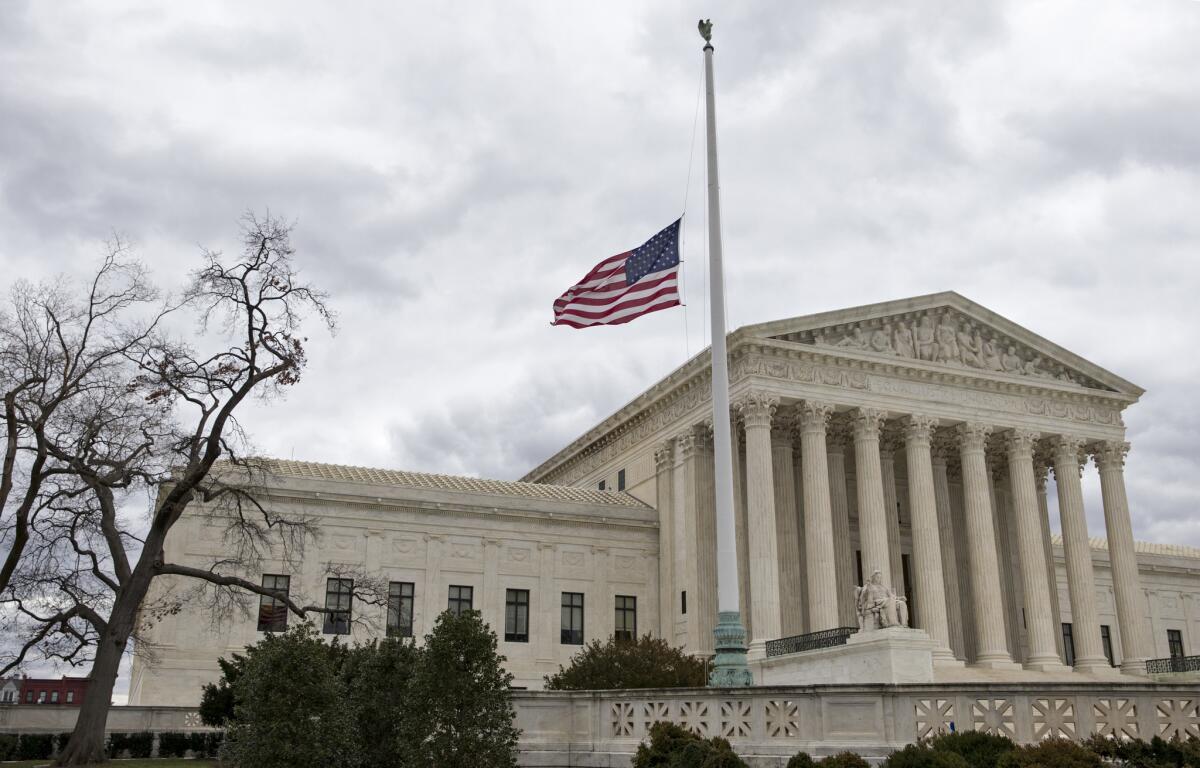Supreme Court OKs California’s use of ‘unclaimed’ cash

The Supreme Court building in Washington on Feb. 25.
California’s system of seizing and spending “unclaimed” cash from banks, mutual funds and defunct businesses has survived a Supreme Court challenge.
The state says it is now holding $8 billion in lost assets. And from this fund, it takes about $450 million a year to add to the state budget.
Join the conversation on Facebook >>
After considering an appeal for four months, the justices said Monday they would not hear a long-running lawsuit that contends the state does not do enough to notify the rightful owners before seizing their assets.
Under the state’s law, accounts can be seized if a bank or retirement fund has lost track of the owner for three years.
State Controller Betty Yee says her office holds these assets so they can be returned to their rightful owner. Its website — www.claimit.ca.gov — permits people to check to see if any of their assets are being held by the state. Amounts under $5,000 can be quickly reclaimed, she said.
But lawyers who sued called the state’s system a “recipe for abuse” because many people are unaware that their assets or those of a relative are being held by the state.
In a concurrence, Justice Samuel A. Alito Jr. said the justices should decide “in a future case” whether states must do more to contact owners of lost property.
“As advances in technology make it easier and easier to identify and locate property owners, many states appear to be doing less and less to meet their constitutional obligation to provide adequate notice” before seizing the accounts, Alito said in Taylor vs. Yee. “Cash-strapped states undoubtedly have a real interest in taking advantage of truly abandoned property to shore up state budgets. But they also have an obligation to return property when its owner can be located.” Justice Clarence Thomas said he agreed.
Separately, the court turned down a building-industry challenge to a San Jose ordinance that says at least 15% of new residential units must be reserved for low-income buyers. These units must be sold at a below-market price that cannot exceed 30% of the buyers’ median income.
The California Building Assn. sued, contending the ordinance amounted to an unconstitutional taking of private property. But the California Supreme Court ruled the ordinance can be enforced, and the Supreme Court said Monday it would not hear the builders’ appeal.
On Twitter: @DavidGSavage
ALSO
Pentagon mobilizes military hackers against Islamic State
A threat ahead: California Democrats losing the fight for younger voters
Here’s everything you need to know about the healthcare plans tax
More to Read
Sign up for Essential California
The most important California stories and recommendations in your inbox every morning.
You may occasionally receive promotional content from the Los Angeles Times.











